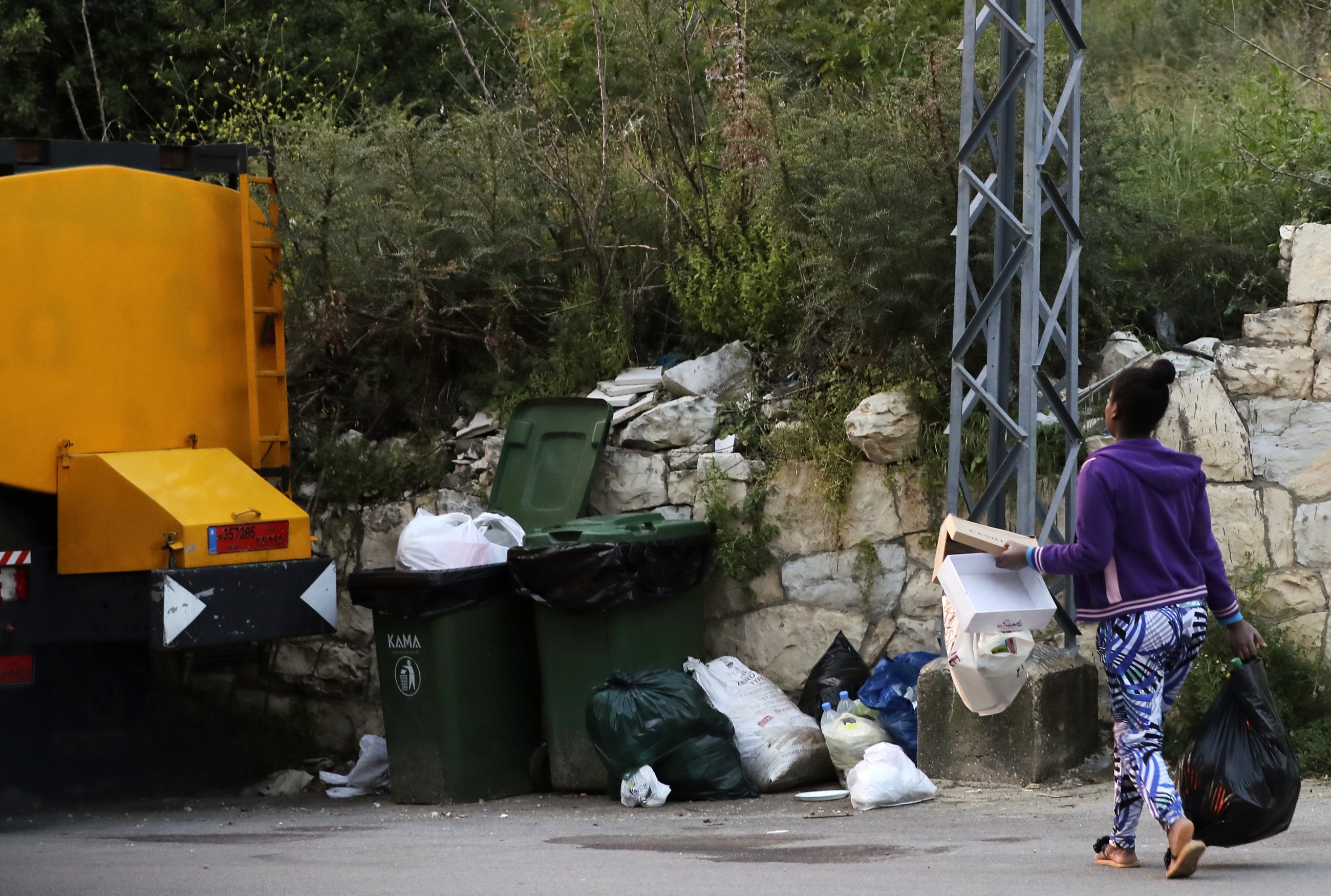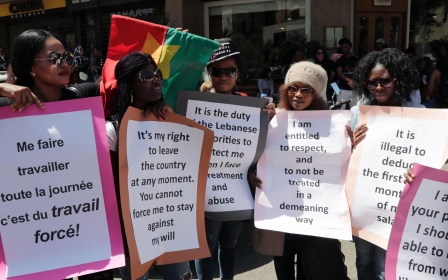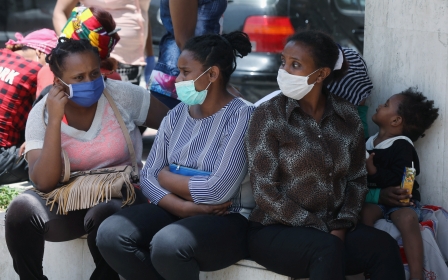Nigerian domestic workers sleeping rough on streets of Beirut

Several Nigerian domestic workers are sleeping rough on the streets of Beirut after being let go by Lebanese employers hard-hit by the country’s economic downturn.
The women had first sought refuge at the premises of a recruitment agency but last week the agent abandoned them near the Nigerian embassy in the Lebanese capital after leading them to believe they were about to return to Nigeria.
Increasing numbers of domestic workers have been spotted on the sidewalks of Beirut in recent weeks, kicked out by their employers with little pay as the country reels from an economic crunch compounded by the coronavirus pandemic.
It comes as Middle East Eye has learned that a Nigerian woman prevented by an abusive employer from returning home earlier this month has now been charged with attempted murder. Campaigners have called the charge a “scandal”.
Meanwhile, the Nigerian ambassador to Lebanon has defended his country’s record in repatriating domestic workers but claimed he did not know the women were homeless.
Hannah Sunmi, 30, had moved into temporary accommodation provided by an employment agency last month after she fell sick and her employer let her go.
Several other Nigerian women had sought refuge with the same agents who are based in Tripoli.
Lebanese recruitment agencies liaise with employers to find work for domestic workers, but many are unregistered and known for unscrupulous and illicit practices.
Early last week, after a month without any work, the agent decided it was time for the women to move on, luring them away with the prospect of a return home to Nigeria.
“The boss told us to pack our luggage, that we are going to the embassy and that the following day the embassy would take us to Nigeria.”
“We didn’t know what they were planning,” she said.
'We waited five minutes, an hour, two hours, three hours, without anything. We started begging people to know where the embassy was'
- Nigerian domestic worker
Sumni and eight others were dropped off by a taxi in an area near the embassy and told to wait for an official who would bring them to the embassy. Nobody came.
“We waited five minutes, an hour, two hours, three hours, without anything. We started begging people to let us know where the embassy was.”
She said the embassy hosted them for two nights. But on Friday morning, they were given 50,000 Lebanese Pounds ($33) and asked to leave. “They said they couldn’t accommodate us and we should go back to where we came from.”
Since then, the women have spent three nights sleeping out on the streets.
“We don't have anybody here. We don't know anybody,” she said.
Goni Modu, Nigeria’s ambassador to Lebanon, confirmed that the women had been at the embassy last week. “We told them to go back to their masters and stay there. Whenever there are flights, we would follow the due process to evacuate them.”
However, the ambassador said he was unaware that they had been rendered homeless. He defended Nigeria’s record of evacuating domestic workers, citing the repatriation of 50 women earlier this month.
But campaigners say that Nigerian authorities are not doing enough.
“I don't know what they are doing about evacuation but they need to start doing something, said a spokesperson for This is Lebanon, a coalition of former domestic workers in Lebanon that regularly names and shames abusers. “The women are hungry and desperate.”
'Scandal'
Meanwhile, Middle East Eye has learned that Ariowolo Olamide Temitope, a Nigerian woman who escaped her abusive employers in April, has now been charged with attempted murder.
Her bloodied image circulated on social media in April after an altercation with her employer, who was subsequently banned by Lebanese authorities from hiring domestic workers and investigated over claims of physical and sexual abuse.
MEE reported last month that her employers had intervened at the last minute to prevent her boarding a repatriation flight home on 24 May.
“That's what happens to domestic workers who have the audacity to speak out about their abuse while they are still in Lebanon," said a spokesperson for This is Lebanon.
“It's a scandal.”
Thousands of poor Nigerian women are lured away each year to work as domestic workers across the Middle East, with some suffering abuse.
The kafala system, widespread across Lebanon and parts of the Middle East, grants employers a large say over the fate of domestic workers who have few rights.
In April, a Lebanese man was arrested and charged after putting a Nigerian domestic worker up for sale on Facebook for $1,000.
A source at the Nigerians in Diaspora Commission, which falls under the Ministry of Foreign Affairs, said last month that they were dealing with hundreds of cases of abuse of domestic workers across the Middle East, including in Lebanon, which they described as “very dangerous”.
“We’re dealing with sexual harassment and abuse, cases of men abusing them and wanting them not to tell their wives, death threats,” the spokesperson said.
Middle East Eye delivers independent and unrivalled coverage and analysis of the Middle East, North Africa and beyond. To learn more about republishing this content and the associated fees, please fill out this form. More about MEE can be found here.






